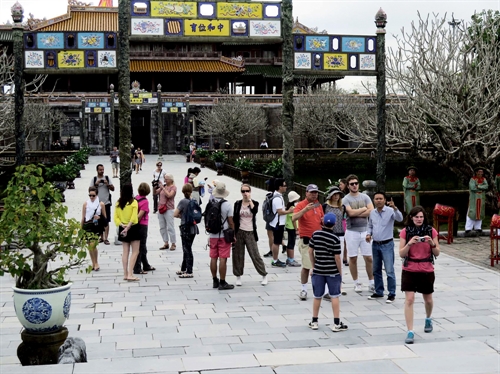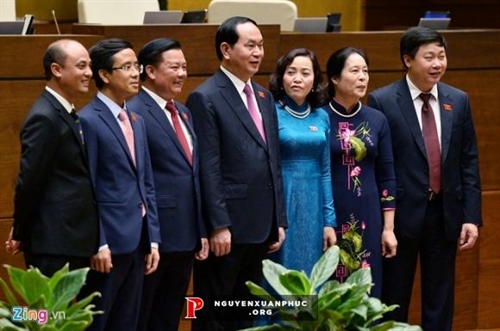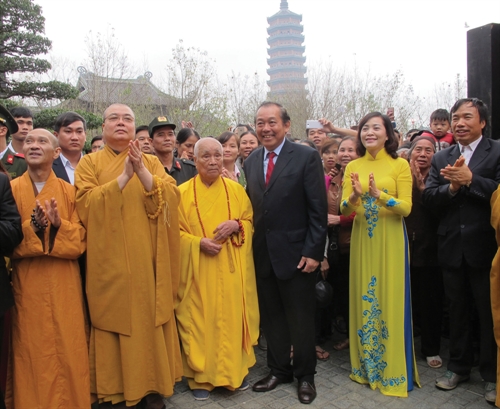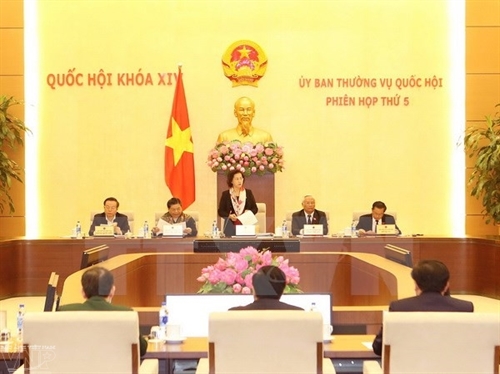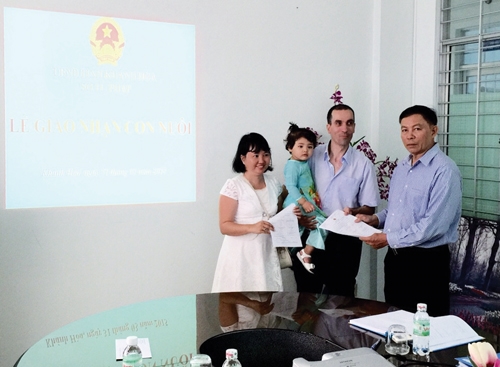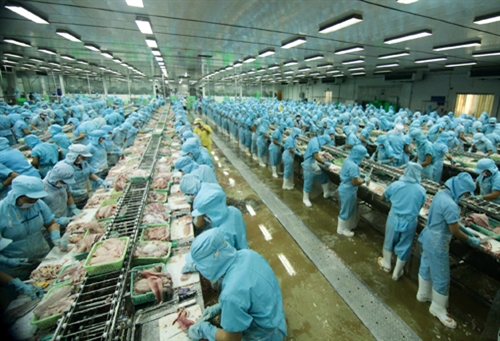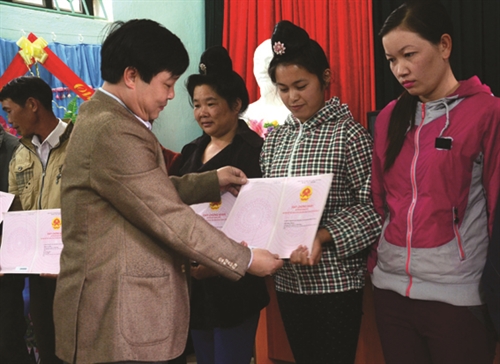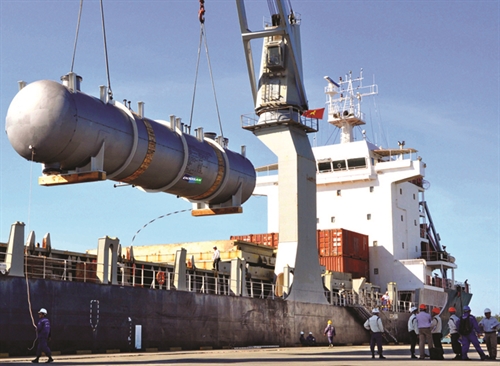Presenting the revised draft Law on Denunciations at the eighth session of the National Assembly (NA) Standing Committee, which began on March 14, Government Chief Inspector Phan Van Sau said the 2011 Law on Denunciations needs amendments because of its shortcomings concerning jurisdiction, settlement of denunciations, and reaching conclusions in denunciation cases.
Legislators held divergent opinions on the draft, especially those relating to anonymous denunciations and forms of denunciation.
Sau said the Government preferred written denunciations and direct denunciations to identify responsibilities of denouncers to avoid misuses of denunciations and inaccurate denunciations.
Others wanted denunciations to be reported also by fax, email or phone so cases are addressed in a timely fashion.
The drafters suggested anonymous denunciations not be accepted as if an inaccurate denunciation was sent, there would be no basis to punish the anonymous sender.
Sau added that state agencies were able to solve just 87.4 percent of anonymous denunciations over the last few years and nearly 60 percent of the solved cases featured inaccurate denunciations.
“If anonymous denunciations are lawfully accepted, related agencies will face difficulties with their workload,” he said.
Head of the NA Law Committee Nguyen Khac Dinh said after assessing the draft law, some members of the Committee agreed that the regulation on anonymous denunciations needed more consideration and should not be added to the revised law now.
However, others said that anonymous denunciations enclosed with detailed documents, photos, sound or video recordings should be accepted and verified.
NA Chairwoman Nguyen Thi Kim Ngan said other forms of denunciation - email, fax, phone and SMS will be accepted only when the denunciations are sent directly to authorized agencies.
She also noted that anonymous denunciations with detailed evidence should be considered, as at a minimum they are clues for agencies to investigate the accusations.
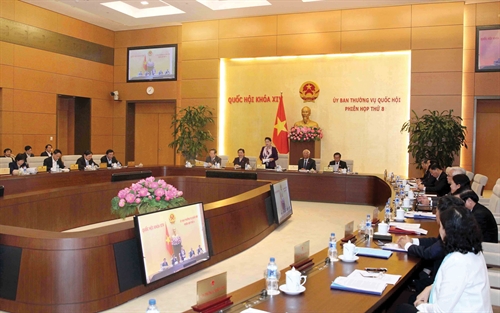 |
| NA Chairwoman Nguyen Thi Kim Ngan addresses the opening session of the 8th meeting of the NA Standing Committee on March 14__Photo: Phuong Hoa/VNA |
At this week-long session, legislators also commented on five draft laws for which the NASC already gave opinions for the first time at its second session, including the draft revisions of the laws on tourism, railways and technology transfer, and the draft laws on planning and foreign trade management.
They also debated three draft laws to be presented to the NA for the first time at its coming session in May, namely the draft revisions of the laws on fisheries, forest protection and development, and public debt management, in addition to the above draft revised Law on Denunciations.
Talking about the draft revised Law on Public Debt Management, Minister of Finance Dinh Tien Dung said after six years of implementation, the law had contributed to mobilizing capital to offset state budget overspending, and created resources for the economy’s key sectors through the Government’s onlending of foreign loans and through government guarantee for domestic and foreign loans.
However, given the country’s international integration and changes in the legal system, many provisions of the law were no longer appropriate, he said.
When questioned about whether the debts of state-owned enterprises (SOEs) should be regulated by the law, Dung said no, explaining that as SOEs are single-member limited liability companies, they have to bear responsibility for the borrowed capital.
“If they fail to pay the debt, they should be dissolved in accordance with the law on bankruptcy,” he said.
Many lawmakers agreed with Dung but some of them expressed their concern over the consequences of excluding SOEs’ debts.
Nguyen Van Giau, head of the NA Committee on External Affairs, said bad debts of many credit institutions would increase sharply because SOEs were their biggest clients, and many of them faced difficulties.
With regard to the tasks and powers of agencies in charge of public debt management, NA Vice Chairman Phung Quoc Hien said it was time to debate regulations on guarantee and re-borrowing of foreign loans by the Government.
The NA Committee on Financial and Budgetary Affairs proposed the Ministry of Finance to be the sole agency responsible for loan and debt payment rather than many agencies currently managing public debts, leading to loose management and rapid growth of public debts.
Deputy Minister of Planning and Investment Dao Quang Thu disagreed with the proposal, saying that the current management mechanism was appropriate as it enabled joint supervision between the Ministry of Finance, Ministry of Planning and Investment and State Bank of Vietnam.
Legislators suggested overcoming inadequacies on mobilization of government loans and tightening onlending and guarantee conditions to ensure the efficient use of capital and ensure debt security.
Debating the draft Law on Foreign Trade Management, the NASC agreed that the law should clearly define the powers and responsibilities of the Ministry of Industry and Trade and related ministries and sectors as well as local authorities at all levels for foreign trade management.
On the issue of managing cross-border trade between border-sharing countries, Chairman of the NA Economic Committee Vu Hong Thanh said trading conducted at sea by border residents has already been regulated by the law, but its provisions on cross-border trading and commodity exchange at sea can only be applied to border residents while cross-border traders must comply with import and export regulations.
He said direct trading conducted between traders at sea without completing the prescribed procedures would be considered smuggling which would be dealt with under regulations against smuggling and cross-border illegal transportation of goods.
Regarding management of foreign trade through trade promotion activities, Thanh agreed not to regulate the establishment of Vietnamese trade promotion organizations in foreign countries under Article 108. He proposed addition of a new clause to this article under which the State will encourage the establishment and involvement of social, professional and economic organizations in trade promotion activities overseas.
Commenting on the revised draft Law on Technology Transfer, Phan Xuan Dung, Chairman of the NA Committee for Science, Technology and Environment, proposed amendments pertaining to state policies on technology transfer, technology assessment in investment projects, and solutions to promote technology transfer and develop the technology market.
He called it imperative to assess and control imported technologies to put an end to obsolete technologies that cause pollution and affect human health. The move also aims to prevent adverse impacts on the country’s business investment climate.
During the session, members of the NASC agreed that the revised draft Railway Law needs comprehensive regulations to revitalize the country’s railway industry.
Under the draft, the Government gives priorities to developing, maintaining and protecting national and urban railways in accordance with the approved national master plan on transport development.
The draft sees a new regulation on government support for the study and application of advanced sciences and technologies in a modern railway sector.
Phan Xuan Dung said the NA Committee for Science, Technology and Environment and Ministry of Transport, as the drafters, proposed a regulation under which the Government spends a proper proportion of state budget funds on railways.
Modest investment was blamed for the slow development or even lagging behind of the railway sector in Vietnam.
Discussing fines for administrative violations in foreign relations and international cooperation activities, Deputy Foreign Minister Bui Thanh Son said operation of Vietnam-based non-governmental organizations (NGOs) generally abides by the country’s laws but violations still persist, such as operating without licenses, renting offices without permission, or operating at office addresses different from those stated in licenses.
Other violations include carrying out activities that go against social ethics and the country’s interests; trying to meddle in the country’s internal affairs with activities such as attempting to influence structural reforms and changes to laws, or releasing statements that slander Vietnam’s adherence to human rights and religious freedom, Son noted.
As for the organization of international seminars or conferences, Son cited common violations such as organizing seminars or conferences without obtaining permission or with permission but failing to consult the Ministry of Foreign Affairs or authorized bodies; or not reporting the results of seminars or conferences to competent authorities as required.
To ensure strict compliance with laws and increase awareness of NGOs in Vietnam, the Government proposed a maximum fine of VND 30 million (USD 1,300) for violations in NGOs’ operation, and a fine of up to VND 20 million for violations in the organization of international seminars or conferences.- (VLLF)
